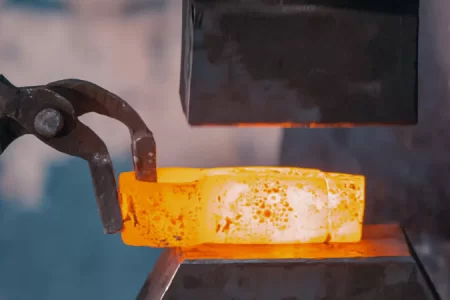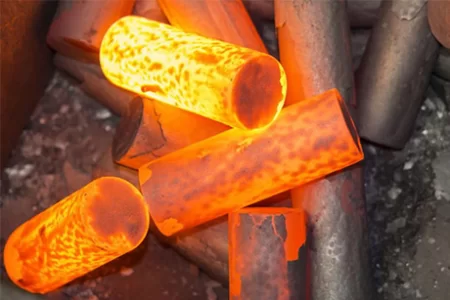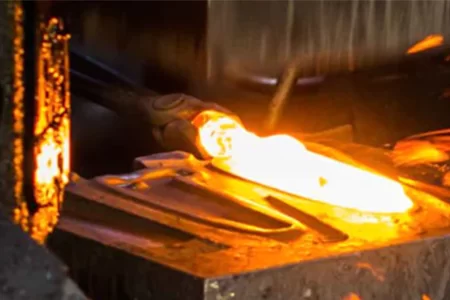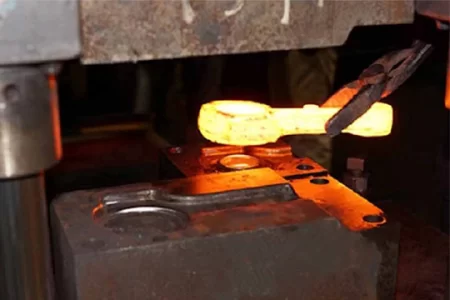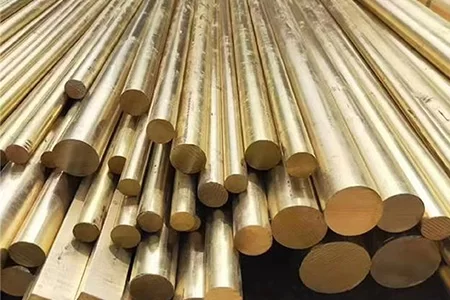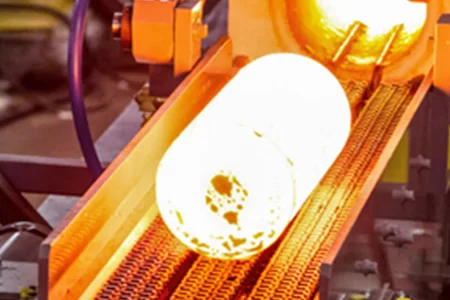By sharing knowledge, experience and views in the field of forging technology, we help you understand, learn and apply relevant technologies.

Hulk Metal Forging Technology
Share technical experience
-
Home>
-
Blog>
-
Technology>
Choosing the Right CNC Machine Company

The advancement of CNC (Computer Numerical Control) machining has revolutionized the manufacturing industry, offering unparalleled precision, efficiency, and consistency. Choosing the right CNC machine company is a critical decision that can impact product quality, production efficiency, and overall operational costs. With the increasing globalization of manufacturing, selecting a reliable international CNC machining partner requires careful evaluation of multiple factors, including technical capabilities, quality control, production capacity, cost-effectiveness, and customer support.
This article provides a comprehensive guide to help businesses select the best CNC machining company that aligns with their production requirements and long-term business goals.
Evaluating Technical Capabilities
A CNC machining company’s technical expertise determines the precision, complexity, and quality of the components they can produce. When evaluating potential partners, consider the following aspects:
Advanced CNC Equipment:
High-quality manufacturers invest in state-of-the-art 3-axis, 4-axis, and 5-axis CNC machining centers to ensure precision and efficiency in complex part production.
Material Expertise:
The ability to work with a wide range of metals, including aluminum, stainless steel, titanium, brass, and special alloys, is essential for diversified applications.
CAD/CAM Proficiency:
A strong CNC machining partner should have expertise in CAD (Computer-Aided Design) and CAM (Computer-Aided Manufacturing) software to optimize machining processes and reduce production errors.
Continuous Innovation:
A reliable company invests in the latest manufacturing technologies, such as automation, robotic integration, and AI-driven machining, to improve efficiency and maintain competitiveness.
Quality Control and Certification
Quality assurance is a top priority when selecting a CNC machining company. Strict quality control processes ensure that components meet precise specifications and industry standards. Key considerations include:
International Quality Certifications:
Certifications such as ISO 9001indicate a company's commitment to quality.
Inspection Equipment:
The presence of advanced testing instruments like coordinate measuring machines (CMM), laser scanners, and hardness testers is a sign of rigorous quality control.
Process Monitoring and Traceability:
The best CNC machining companies implement real-time monitoring systems and maintain detailed production records to ensure consistency and traceability.
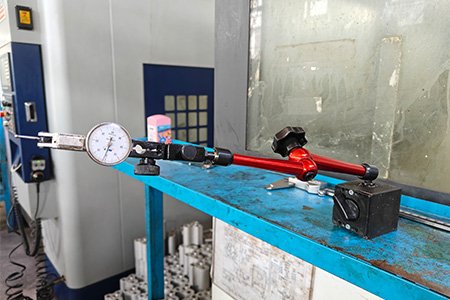
Customer Feedback and Reputation:
A company’s track record, customer reviews, and case studies provide valuable insights into their quality standards and reliability.
Production Capacity and Scalability:
The ability of a CNC machining company to meet production demands—whether for small prototype runs or large-scale manufacturing—plays a crucial role in long-term partnerships. Factors to evaluate include:
Production Volume Capabilities:
Can the company handle both low-volume and high-volume production efficiently?
Lead Time and Delivery Commitment:
A company’s ability to deliver on time without compromising quality is essential for avoiding production delays.
Manufacturing Flexibility:
Some projects require quick adjustments in design, material selection, or batch sizes. A flexible manufacturer can accommodate such changes efficiently.
Cost-Effectiveness and Value for Money
While price is an important consideration, choosing the cheapest option can often lead to quality issues and hidden costs. Instead of focusing solely on price, assess the company’s overall cost-effectiveness:
Competitive Pricing Structure:
A transparent pricing model with clear cost breakdowns for raw materials, machining, finishing, and shipping.
Operational Efficiency:
Advanced CNC companies optimize their machining strategies to reduce material waste, cycle time, and labor costs, which ultimately benefits the customer.
Long-Term Value:
A slightly higher upfront cost may be justified if the company offers higher precision, durability, and better quality control, reducing rework and failures in the long run.
Industry Experience and Reputation
The CNC machining industry covers diverse sectors, including aerospace, automotive, medical, construction, and heavy machinery. Choosing a company with experience in your specific industry ensures compliance with relevant standards and specifications. Key aspects to consider:
Proven Track Record:
Look for companies with documented case studies, client testimonials, and successful projects.
Industry Compliance:
Ensure the manufacturer is familiar with the regulatory requirements and material standards for your industry.
Longevity and Stability:
A company that has been in business for several years is more likely to offer consistent quality and reliability than a newly established one.
Technical Support and After-Sales Service
Strong technical support and after-sales service ensure smooth collaboration and help resolve potential issues quickly. A reputable CNC machining company should provide:
Technical Consultation:
Guidance on material selection, machining feasibility, and design improvements.
Ongoing Support:
Assistance with product modifications, troubleshooting, and maintenance recommendations.
Warranty and Service Agreements:
Some CNC companies offer warranties on manufactured components, ensuring quality and performance.
Geographical Location and Logistics Considerations
For businesses outsourcing CNC machining internationally, logistics play a significant role in cost, lead time, and efficiency. Important factors include:
Proximity to Key Markets:
Companies located in industrial hubs often have better infrastructure, skilled labor, and material availability.
Shipping and Import Regulations:
Understanding tariffs, customs regulations, and shipping costs can impact the overall project budget.
Supply Chain Reliability:
A manufacturer with a robust supply chain can source materials quickly and minimize production disruptions.
Commitment to Sustainability and Ethical Manufacturing
As global industries move towards sustainable manufacturing, it is important to choose a CNC machining company that prioritizes environmental responsibility and ethical practices. Look for:
Eco-Friendly Machining Practices:
Companies that optimize energy consumption, reduce material waste, and utilize environmentally safe lubricants and coolants.
Responsible Material Sourcing:
Compliance with regulations like RoHS (Restriction of Hazardous Substances) and REACH (Registration, Evaluation, Authorization, and Restriction of Chemicals).
Fair Labor Practices:
Ethical working conditions, fair wages, and adherence to labor laws indicate a responsible business approach.
Why Choose HULK Metal?
HULK Metal is a trusted CNC machining partner with extensive experience in precision metal processing. As an industry leader, HULK Metal offers:
State-of-the-Art Equipment:
Advanced 3-axis, 4-axis, and 5-axis CNC machining centers ensure high precision and efficiency.
Strict Quality Control:
ISO-certified production processes with rigorous inspection protocols guarantee top-quality components.
Custom Machining Solutions:
Tailored CNC machining services to meet the unique requirements of various industries, including construction hardware,trailer accessories and mining parts.
Reliable Supply Chain and Logistics:
A well-established international logistics network ensures timely delivery and cost-effective shipping solutions.
Commitment to Sustainability:
Environmentally friendly machining processes and responsible material sourcing practices.
Selecting the right CNC machine company is a crucial decision that requires a detailed evaluation of technical expertise, quality control, production capabilities, cost-effectiveness, industry experience, and sustainability practices. By partnering with a reputable CNC machining provider like HULK Metal, businesses can ensure high-quality manufacturing, streamlined production processes, and long-term success in their respective industries.
By thoroughly assessing these factors, companies can make informed decisions and secure a CNC machining partner that aligns with their operational and strategic goals.
Article Navigation
Article Navigation
Industries
Foundries
-

July.01, 2024
Difference between hot forging and cold forging
READ MORE
-

June.27, 2024
What are the advantages and disadvantages of the hot forging process?
READ MORE
-

January.18, 2024
Forging: What Is It? What Are The Different Types of Hot Forging?
READ MORE
-

November.29, 2024
What is steel forging?
READ MORE
-

July.30, 2024
What are the materials for hot forging?
READ MORE
-

July.03, 2024
What are the processes of hot forging?
READ MORE



